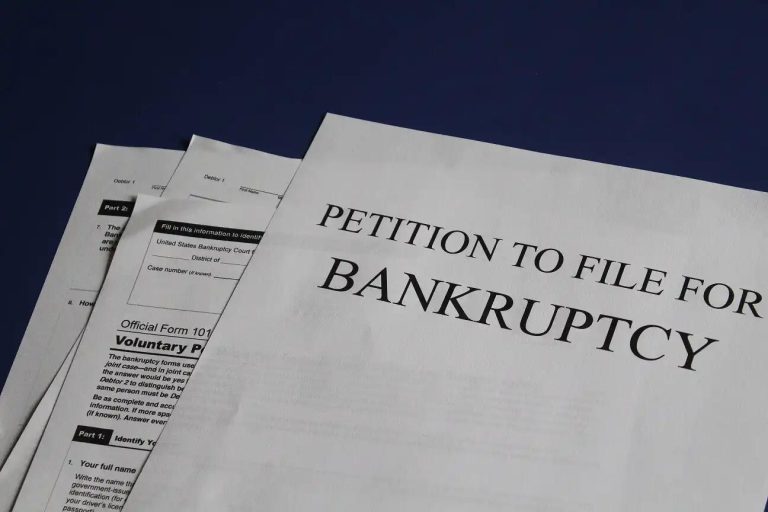Cryptocurrency in Divorce: How Bitcoin Is Divided in Divorce
Cryptocurrency took the world by storm. Since its inception in 2009, Bitcoin went from costing $1 to hitting an all-time high of $64,863 in April of 2021. Its rivals, Ethereum and Litecoin, among others, while significantly cheaper, have also made waves on the market for a decade now.
Just ten years ago, governments and financial experts were wondering whether a cryptocurrency would have any influence on the economy. Today, we know for sure that it does. But, to what extent?
Scaling the Influence
Unfortunately, it’s still hard to determine the gravity of the impact that cryptocurrency has, either globally or locally. Therefore, governments are having a hard time adjusting laws and putting forward policies to cover for potential scenarios involving cryptocurrencies. For a lot of legislators, the whole concept is simply too much to grasp. Others choose to focus on big-scale effects, which, while justifiable, leaves a lot of room for losses and injustices on a smaller scale.
One of the scenarios where the US and many other countries fell short is asset division during a divorce where one or both spouses own cryptocurrency. With the “crypto holes” in state statutes, there is an apparent lack of family law practitioners and legal experts who understand how cryptocurrency works and, thus, how to protect their clients’ assets or help them get their fair share in a divorce.
Hiding Assets
Cryptocurrencies are both famous and infamous for granting anonymity to their owners. These are digital, and thus, intangible assets, which are hard to trace and impossible to access without a private key. There is no governmental or bank control over the exchange, and while the security across digital currencies differs, tracking attempts may be expensive and yield no results.
Although spouses are legally obligated to disclose their financial information during a divorce and will be held in contempt of court if they lie about it, cryptocurrencies are easier to hide than other assets. Those who have a lot to lose if they need to share may choose to leave out the information about their digital wallets.
If it were for a bank account, it would be easy to request a freeze from the court and make sure that the money in it was kept intact. Can a similar freeze be requested for a cryptocurrency? Generally, yes. However, its enforcement would be nearly impossible to guarantee if there is no solid proof that a person owns a specific amount. Still, as long as there is reasonable suspicion of cryptocurrency ownership, it might be possible to request a freeze of other assets in place of it.
Uncovering Hidden Assets
There are private investigators and forensics companies with blockchain expertise that use advanced analytical tools and data science to discover and interpret cryptocurrency transactions. Apart from that, they can examine devices used for any operations involving virtual money to extract information that can be presented as evidence in court and testify about their findings.
Working closely with lawyers, such experts may make suggestions regarding subpoenas to request from courts. Legal orders would grant these specialists access to information protected by trading platforms and ultimately uncover digital assets or put a freeze on them.
While these approaches may work well with Bitcoin and other popular currencies, there are private coins with advanced security features, which might be impossible to bypass. Therefore, no matter the case, there is no 100% guarantee of success. As such services are quite costly, it is worth determining whether the stakes are high enough to justify the risks of pouring funds into forensics.
Determining the Value
Where the control is low, the volatility is often high, and this is a given when it comes to cryptocurrencies. For instance, in 2021, Bitcoin was valued at around $33,139 on February 1 and at about $57,492 on February 22. With such fluctuations within a single month and average divorce proceedings lasting for a year, what value to consider during the divorce?

Unfortunately, at the moment, there is no “legal” answer as the laws addressing this aspect are non-existent. One of the “logical” answers, however, would most likely be – no value at all. The number of coins is a much more stable variable when it comes to cryptocurrency, and thus, it would be easier to use in the asset division process.
However, it is not a one-size-fits-all solution. Obviously, not all people would want to transfer coins and would much rather prefer giving up assets of the same value instead, which brings back the question of how to determine the latter. Spouses may try to account for the volatility, and approximate the value over time, but the possibility of it being accurate is slim to none.
What complicates the situation even more is that the exact length of the divorce process is just as impossible to predict. Therefore, it might be necessary to adjust the approximation multiple times, which may prolong the proceedings, potentially creating a “loop” of adjustments and length increases.
The success of the value-based approach will eventually be determined by myriad more factors such as the level of professionalism and knowledge of legal and financial experts that spouses involve in their divorce, decisions made by a judge, and the ability of spouses to cooperate, to name a few.
Dividing Cryptocurrency
When it comes to the division of virtual money, speed is of essence considering the value volatility. If divorcees use sound financial advice and quickly reach an agreement on cryptocurrency distribution, they are likely to derive more profit from the situation.
While a lot will depend on the value of coins at a specific moment, the honesty in the asset disclosure and fairness in the division will allow spouses not to retain lawyers for long and refrain from hiring forensic experts.
With the majority of divorces being uncontested, such a settlement might sound achievable. However, the statistics fails to account for divorces involving cryptocurrency division. At the moment, there is no way to know what percentage of such cases are resolved peacefully out of court.

Asset Division Laws
When cryptocurrency becomes a point of dispute, courts make decisions based on state-specific asset division laws:
- In community law states, such as California and Texas, each divorcee gets 50% of their marital property. All the assets and income gained in a marriage are divided equally, and those owned prior to the wedding, gifted, or inherited are unlikely to be touched unless they were mixed with marital ones.
- In common law states, which most of the states in the US are, spouses acquire marital property in the course of a marriage by putting it in both of their names. Moreover, the division of such assets is fair rather than equal, although it may be the latter in certain scenarios.
Lawyers may use income, family contributions, earning potential, disabilities, faults, commingling of assets, and other factors to influence the outcome of the asset division.
With such a variety of aspects that need to be accounted for and the lack of legal backing for crypto-related decisions, family law specialists might be reluctant to work with cases involving digital currencies. This leaves divorcees with a rather small pool of lawyers who have ample knowledge about and are ready to help with virtual assets. Financial and forensic experts are bound to have a leading role in such proceedings and will be heavily relied upon in any decision-making and the transfer of cryptocurrency post-divorce.
Resources
- Bahar, M., Kaufman, G., & Bertch, K. (September 28, 2018). Insight: Enforcing Crypto Freeze. Bloomberg Law. Retrieved from: https://news.bloomberglaw.com/securities-law/insight-enforcing-the-crypto-freeze
- Blockchain. Bitcoin. Retrieved from: https://www.blockchain.com/prices/BTC
- Cipherblade. (n.d.) Blockchain Forensics. Retrieved from:https://cipherblade.com/blockchain-forensics/
- Conway, L. (May, 2021). The 10 Most Important Cryptocurrencies Other Than Bitcoin. Investopedia. Retrieved from: https://www.investopedia.com/tech/most-important-cryptocurrencies-other-than-bitcoin/
- Dore, K. (May 28, 2021). Dividing Cryptocurrency in a Divorce Settlement is Complicated. CNBC. Retrieved from: https://www.cnbc.com/2021/05/28/dividing-cryptocurrency-in-a-divorce-settlement-is-complicated.html
- Frankenfield, J. (May, 2021) Bitcoin. Investopedia. Retrieved from: https://www.investopedia.com/terms/b/bitcoin.asp
- Loudenback, T. (January 21, 2020). In 9 US States, a Divorce Could Mean Losing Half of Everything you Own. Business Insider. https://www.businessinsider.com/personal-finance/which-states-are-community-property-states-in-divorce
- Michon, K. (n.d.). How Much Will My Divorce Cost and How Long Will It Take? Nolo. Retrieved from:https://www.nolo.com/legal-encyclopedia/ctp/cost-of-divorce.html
- Seth, S. (July 4, 2021). The 6 Most Private Cryptocurrencies. Investopedia. Retrieved from:https://www.investopedia.com/tech/five-most-private-cryptocurrencies/
Online Divorce Made Simple
Complete your divorce forms through a simple, guided process designed for your state. No lawyers, no court stress.








